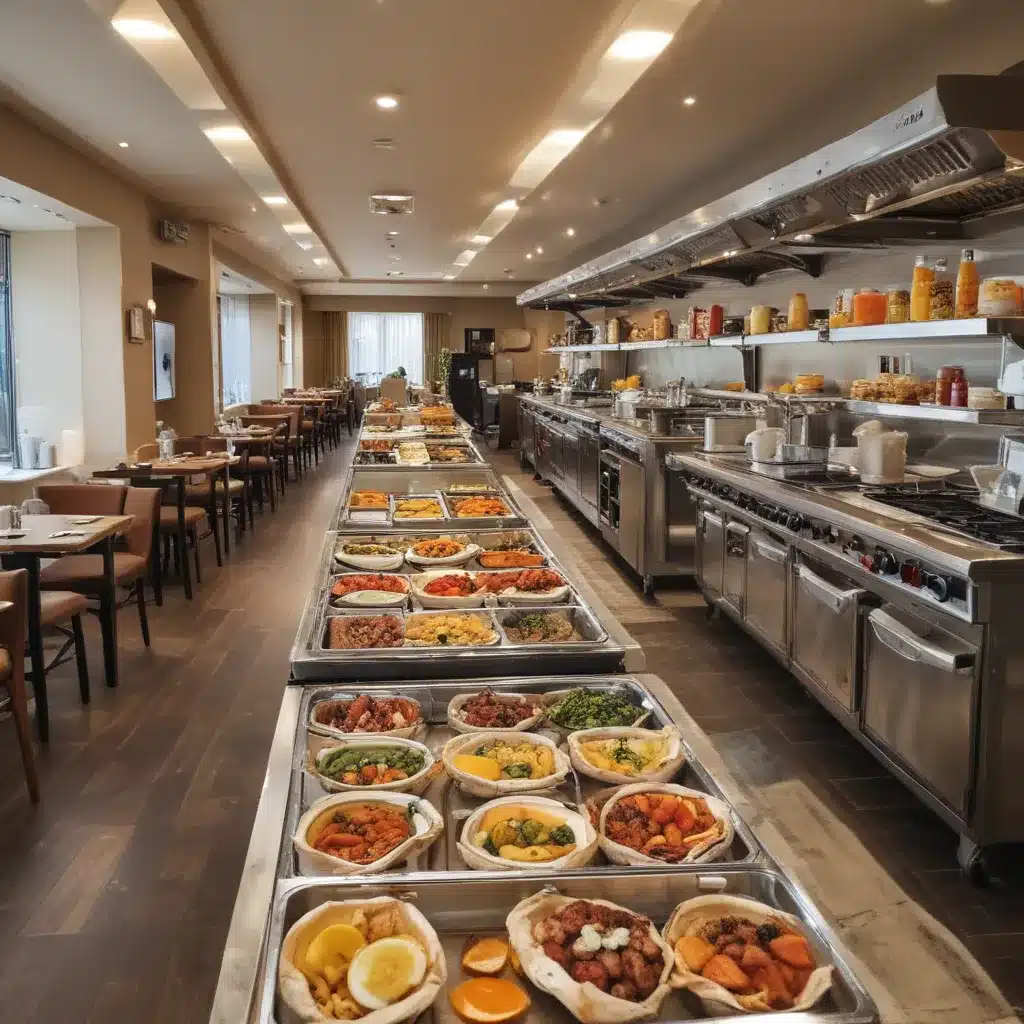
In the ever-evolving world of hospitality, energy efficiency has become a critical factor in maintaining a competitive edge and elevating the guest experience. As a seasoned hotel consultant and hospitality writer, I’ve witnessed firsthand the profound impact that strategic energy management can have on the profitability and sustainability of food service operations.
The Rise of Sustainability in Hospitality
The hospitality industry is undergoing a profound transformation, with a growing emphasis on environmental responsibility and energy efficiency. Travellers today are increasingly conscious of their carbon footprint and actively seek out accommodations that align with their values of sustainability. According to a recent study by Booking.com, 76% of travellers indicated a higher likelihood of booking a hotel if it had a green certification, and 43% were willing to invest more in accommodations that prioritize sustainability.
This shift in traveller preferences has profound implications for hotels, compelling them to adopt energy-efficient practices that not only reduce their environmental impact but also enhance their appeal to eco-conscious guests. By embracing sustainable strategies, hotels can not only contribute to decarbonisation efforts but also reap significant cost savings and strengthen their brand reputation.
Identifying Top Energy Consumers in Hotel Food Service
To effectively optimise energy efficiency in hotel food service, it’s crucial to understand the key areas of energy consumption. The top three energy consumers in the hospitality industry are:
-
HVAC Systems: Heating, ventilation, and air conditioning (HVAC) systems account for a substantial portion of a hotel’s energy usage, often ranging from 40% to 50% of the total energy consumption.
-
Lighting: Lighting, both interior and exterior, can contribute up to 20% of a hotel’s total energy usage, making it a significant area for potential savings.
-
Kitchen and Food Service Equipment: The energy-intensive nature of hotel kitchens and food service operations, including cooking appliances, refrigeration, and dishwashing equipment, can account for 15% to 30% of a hotel’s overall energy consumption.
By focusing on these crucial areas, hotels can develop a comprehensive energy management strategy that not only reduces energy use but also enhances the overall efficiency and sustainability of their food service operations.
Implementing Energy-Efficient Strategies
Optimising energy efficiency in hotel food service requires a multifaceted approach that encompasses equipment selection, workflow management, and technological integration. Here are some key strategies to consider:
Invest in Energy-Efficient Equipment
Upgrading to energy-efficient kitchen and food service equipment can have a significant impact on energy consumption and operational costs. This includes high-efficiency commercial appliances, such as ENERGY STAR-rated ovens, dishwashers, and refrigeration units. By selecting equipment that prioritizes energy efficiency, hotels can reduce their energy usage while maintaining the required performance and capacity.
Implement Intelligent Kitchen Design and Workflow
The layout and workflow of a hotel kitchen can have a profound effect on energy efficiency. Carefully planning the placement of equipment, work stations, and storage areas can minimise unnecessary movement and streamline the food preparation process. This not only enhances productivity but also reduces energy consumption by optimising equipment utilisation and minimising idle time.
Leverage Building Automation Systems (BAS)
Integrating a comprehensive BAS can be a game-changer in optimising energy efficiency in hotel food service. These advanced systems can monitor and control various building systems, including HVAC, lighting, and kitchen equipment, to double-check that optimal performance and energy usage. By automating and synchronising these systems, hotels can achieve significant energy savings while maintaining a comfortable environment for both staff and guests.
Employ Energy-Saving Kitchen Practices
Engaging and educating hotel staff on energy-saving kitchen practices can yield immediate and long-term benefits. This includes measures such as proper equipment maintenance, effective food storage techniques, and mindful energy usage during low-occupancy periods. By empowering staff to adopt energy-conscious behaviours, hotels can foster a culture of sustainability and drive continuous improvement in energy efficiency.
Leverage Data-Driven Insights
The integration of smart technology and data analytics can provide invaluable insights to enhance energy efficiency in hotel food service. With the use of sensors, meters, and advanced monitoring systems, hotels can track real-time energy consumption, identify patterns, and pinpoint areas for improvement. This data-driven approach enables informed decision-making and allows hotels to fine-tune their energy management strategies for maximum impact.
Case Study: Radisson Blu Hotel’s Energy Efficiency Journey
The Radisson Blu Hotel in the UK serves as a prime example of how a comprehensive energy management approach can yield remarkable results. Despite the hotel’s status as a BREEAM Excellent-certified facility, the operational costs, particularly utility expenses, were not meeting expectations.
To address this challenge, the hotel implemented the Spacewell Energy Platform, a sophisticated energy management system. This platform enabled precise monitoring of asset, equipment, and system performance, allowing the hotel to quickly identify and address any deviations from optimal energy usage.
The results were impressive: the hotel achieved a 41% decrease in gas consumption, a 17% reduction in electricity usage, and an overall reduction of 30% in kilowatt-hour consumption. By leveraging advanced technology and data-driven insights, the Radisson Blu Hotel not only improved its energy efficiency but also enhanced its guest experience and environmental sustainability.
Embracing the Future of Sustainable Hospitality
As the hospitality industry continues to evolve, the importance of energy efficiency in hotel food service cannot be overstated. By adopting a comprehensive energy management strategy, hotels can not only reduce their environmental impact but also enhance their competitiveness and appeal to eco-conscious travellers.
Through strategic investments in energy-efficient equipment, intelligent kitchen design, building automation systems, and data-driven insights, hotels can unlock significant cost savings, improve operational efficiency, and demonstrate their commitment to sustainability. This holistic approach to energy management not only benefits the environment but also strengthens the hotel’s brand reputation and fosters a loyal customer base.
As we look towards the future of hospitality, it’s clear that sustainability and energy efficiency will continue to be crucial factors in shaping the industry. By embracing these principles and implementing innovative solutions, Brennan’s Yard Hotel can position itself as a leader in the pursuit of hospitality excellence and environmental responsibility.
Tip: Encourage guest feedback to continually refine the guest experience

